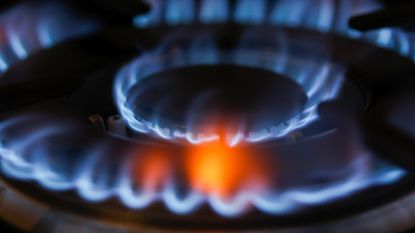What is the Energy Price Cap and will today’s announcement mean cheaper bills?
Ofgem has just announced the latest energy price cap, which sets the maximum unit price domestic customers can pay for their energy. This will mean an average 17% drop in the price of energy rates from July and means, for every £100 you currently spend on energy, you’ll now spend around £83. Here’s everything you need to know.


If you’ve been wondering whether energy prices will come down in 2023, then there is some good news as costs are set to fall from July.
Analysts at Cornwall Insight were predicting the latest rates to take the average typical household bill to around £2,053 - £447 lower than the Energy Price Guarantee (EPG). However the announcement this morning, from the regulator Ofgem, means the average annual typical household bill should fall to £2,074 from July. This means a drop of £426 a year based on the average annual usage under the EPG.
This announcement in the drop in the energy price cap could also spark a return of cheap fixed energy deals.
Subscribe to MoneyWeek
Subscribe to MoneyWeek today and get your first six magazine issues absolutely FREE

Sign up to Money Morning
Don't miss the latest investment and personal finances news, market analysis, plus money-saving tips with our free twice-daily newsletter
Don't miss the latest investment and personal finances news, market analysis, plus money-saving tips with our free twice-daily newsletter
We explain what the energy price cap is and why it matters when it comes to managing your energy bill.
When is the energy price cap announcement?
The energy price cap was announced by Ofgem at 7am this morning and determines prices for Q3 - from 1 July to 30 September.
The cap is set four times a year; it currently stands at £3,280 for a typical household paying by direct debit. This was down from the £4,279 set for the January to March period. This is higher than the EPG, but this time round the announcement is significant as energy prices will fall below the EPG, meaning Ofgem’s energy price cap will now become the default tariff for households from July.
What is the Energy Price Cap?
The Energy Price Cap sets the maximum unit rate energy firms can charge per kilowatt hour for gas and electricity, along with standing charges.
Under the new price cap, which takes effect from 1 July, the unit price of electricity will be 30.1p per kWh along with a standing charge of 53p per day. And with gas, the unit price will be 7.5p per kWh with a daily standing charge of 29p. This still means that regardless of the amount of energy you use, if you have both gas and electricity, you’ll be paying around £300 a year in standing charges alone.
It’s important to stress that the name ‘cap’ doesn’t mean this is a cap on the total cost of your energy bills,but instead it’s a cap on the amount you can be charged per unit, or kWh of energy.
The energy price cap was initially put in place to protect households by preventing energy firms from overcharging customers who didn’t switch suppliers and were paying over the odds as they stuck with suppliers’ more expensive variable tariffs.
But when wholesale gas prices soared, the Ofgem energy price cap became unaffordable and it led to a number of small energy firms going bust and other suppliers pulling cheap fixed energy deals. It also meant households were left with extortionate bills.
The government stepped in last Autumn with the EPG and this has remained as the default tariff whilst prices have been high. But now there is an expectation that prices will drop and the Energy price Cap will be the default tariff again.
What does the energy price cap mean for your bills?
While energy prices will be dropping by an average of 17%, and energy will be cheaper, households will still be paying more for energy than last Winter. It is widely anticipated that the drop in the prices will spark a return of fixed energy deals. While we have seen some suppliers, like Ovo Energy, offer fixed energy deals to existing customers, most people have not been able to switch suppliers to make savings. Comparison sites are offering the chance to sign up for updates, when switching deals return to the market.
However now we know what the Energy Price Cap will be from July, suppliers may already be prepping deals to bring in new customers with fixed energy deals.
According to uSwitch’s latest predictions, fixed deals could be around £2,200 a year for average typical use, and we will update you once we hear of fixed deals returning to the market.
Sue Hayward is a consumer and personal finance journalist, broadcaster and author whose work has appeared everywhere from the Guardian and Good Housekeeping to My Weekly and Lovemoney. Sue is a regular money guest on TV and Radio with recent appearances on Steph’s Packed Lunch, Jeremy Vine on 5 and 5 News.
-
-
 Investment trust discounts hit 2008 levels. Here’s how to profit
Investment trust discounts hit 2008 levels. Here’s how to profitInvestment trust discounts have risen to levels not seen since 2008, here are three trusts looking to buy to profit.
By Rupert Hargreaves Published
-
 A luxury stock to buy at a high street price
A luxury stock to buy at a high street priceInvestors wrongly consider Watches of Switzerland a high-street outlet.
By Dr Matthew Partridge Published
-
 Investing in wine: how Cru Wine is reaching new audiences
Investing in wine: how Cru Wine is reaching new audiencesTips Gregory Swartberg, founder of fine wine specialist Cru Wine, talks to Chris Carter about how to start a wine collection
By Chris Carter Published
-
 Small companies with big potential
Small companies with big potentialMichael Taylor of Shifting Shares reviews his 2023 picks and highlights more promising minnows.
By Michael Taylor Published
-
 The MoneyWeek portfolio of investment trusts – July 2023 update
The MoneyWeek portfolio of investment trusts – July 2023 updateTips A decade ago we set up the MoneyWeek portfolio of investment trusts. They remain a compelling long-term bet says Rupert Hargreaves
By Rupert Hargreaves Published
-
 Women lead the way with ethical investments
Women lead the way with ethical investmentsDemand for more ethical investments has soared – and women are more likely to opt for them. Annabelle Williams, personal finance specialist at Nutmeg, takes a look at why.
By Annabelle Williams Published
-
 BoE: Mortgage payments to rise by £220 a month for households
BoE: Mortgage payments to rise by £220 a month for householdsMillions of households can expect a mortgage spike of around £200 a month - and some may even reach a extra £1,000 a month, the Bank of England warns
By Marc Shoffman Published
-
 What happened to Thames Water?
What happened to Thames Water?Thames Water, the UK’s biggest water company could go under due to mismanagement and debt. We look into how the company got itself into this position, and what investors should expect.
By Simon Wilson Last updated
-
 Where to invest in the metals that will engineer the energy transition
Where to invest in the metals that will engineer the energy transitionA professional investor tells us where he’d put his money. This week: John Ciampaglia, manager of the Sprott Energy Transition Materials UCITS ETF.
By Nicole García Mérida Published
-
 How investors can profit from high food prices
How investors can profit from high food pricesThe latest furore over grocery prices will die down, says David Stevenson. But the long-term outlook for soft commodities remains bullish. These are the stocks investors can buy to profit from high food prices.
By David J Stevenson Published









